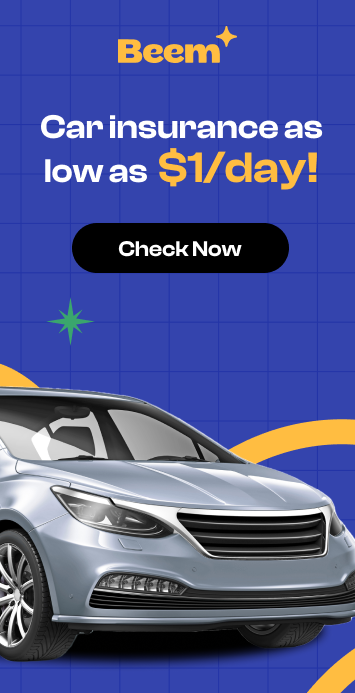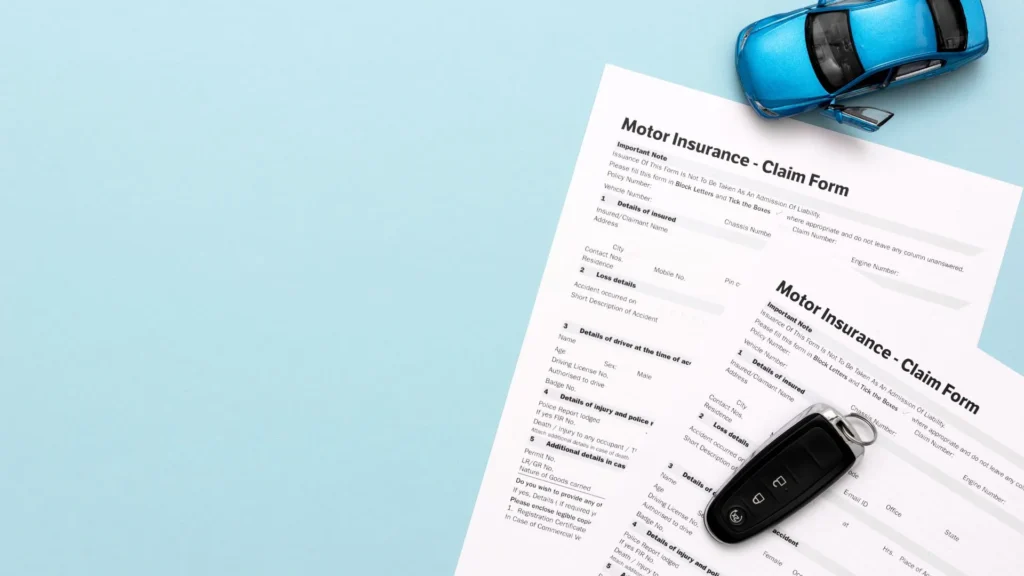Embarking on a road trip in your RV is synonymous with freedom, adventure, and making cherished memories. However, with the thrill of the journey comes the responsibility of ensuring that your beloved home-on-wheels is adequately protected. This is where RV insurance steps in. But does your regular auto insurance suffice, or should you opt for specialized insurance for an RV? Diving into the world of insurance can be overwhelming. Therefore, Beem is here to help you navigate the process of insuring your vehicle. Use Beem’s online comparison tool to get the best insurance quotes for your budget and make the right choice for your requirements.
So, in this guide, we’ll break down the nuances of RV insurance, uncover its cost, and offer tips on snagging the best RV insurance quote. By the end, you’ll have the knowledge to make informed decisions, ensuring your RV adventures remain worry-free.
Does Auto Insurance Cover My RV?
For many RV owners, one of the first questions that springs to mind is whether their existing auto insurance provides Coverage for their recreational vehicle. The answer is more complex than you think!
Auto Insurance vs. RV Insurance
At its core, auto insurance is designed to cover standard vehicles. While it may offer some protection for your RV, it often fails to address recreational vehicles’ unique needs and potential risks. This is where RV insurance distinctly stands out. Here is the difference between the two forms of insurance explained further:
| Aspect | RV Insurance | Auto Insurance |
| Primary Coverage | Protects both vehicle and home aspects of an RV. | Primarily covers standard vehicles for road accidents. |
| Contents Protection | Typically offers coverage for personal belongings inside the RV. | Auto insurance coverage rarely covers personal belongings inside a car. |
| Specialized Scenarios | Covers unique situations like awning damage or emergency accommodations. | Doesn’t consider RV-specific scenarios. |
| Nature of Use | Accounts for both short trips and extended living scenarios. | Designed for daily commutes and short-term road usage. |
| Size and Type | Covers a range of RV sizes and types, from Class A motorhomes to pop-ups. | Generally caters to standard-sized vehicles. |
Extent of Coverage
Most auto insurance policies will cover your RV when driving it on the road, just like any other vehicle. This typically includes liability coverage, which protects you from costs associated with damaging another person’s property or if someone is injured in an accident where you’re at fault. But don’t worry, auto insurance with Beem covers damage to your vehicle, damage to other vehicles or property, and injuries to yourself or others.
Specialized Features of RV Insurance
Insurance for an RV is specialized to consider the dual nature of an RV – both a vehicle and a residence. As such, RV insurance often includes comprehensive Coverage, which means protection against non-collision-related incidents like fires, theft, or vandalism. Moreover, it can offer content coverage, safeguarding the personal items inside your RV.
What are the Different Types of RV Insurance?
RVs are not one-size-fits-all, and neither is their insurance. When considering insurance for an RV, it’s crucial to understand that there are various types to cater to the unique requirements of different RVs. Here’s a comprehensive guide to help you navigate through the different types.
1. Liability Insurance: As auto insurance, liability is the most basic form of RV insurance. It covers damage you may cause to others, either in a collision or if someone gets hurt in or around your RV
2. Comprehensive Coverage: This insurance covers your RV if events beyond collisions damage it. Think of incidents like fires, theft, vandalism, or acts of nature. Suppose you’re invested in a luxurious RV or have recently purchased a new one. In that case, this might be the right choice for you.
3. Collision Coverage: As the name implies, this covers damage to your RV when you collide with another vehicle or object. Given the size and complexity of most RVs, repairs can be costly. Collision coverage helps offset those costs.
4. Uninsured/Underinsured Motorist Coverage: Despite laws requiring insurance, some drivers on the road either need insurance or more. This Coverage protects you if you’re in an accident with one of those drivers.
5. Total Loss Replacement/Purchase Price Coverage: If the RV is totaled in an accident, this coverage offers a replacement for it. For new RVs, the replacement is often for a brand-new model.
6. Campsite and Vacation Coverage: This unique RV insurance quote often caters to those who use their RVs for vacationing. It covers liabilities when your RV is parked in a campsite or RV park.
7. Roadside Assistance: RVs are complex machines. Towing can be pricey if you face a breakdown in a remote area. Roadside assistance covers towing costs and minor repairs to help get you back on the road.
8. Custom Equipment Coverage: RV enthusiasts often add custom vehicle features or equipment. This Coverage ensures that those custom additions are protected.
9. Full-timers Coverage: If you live in your RV full-time, it’s not just a vehicle; it’s your home. Full-timers coverage acts like a hybrid between home and auto insurance, covering liabilities associated with both.
How Much Does RV Insurance Cost?
One must recognize the significance of ensuring this cherished asset when delving into RV ownership. But how much does it cost to get insurance for an RV? The cost can vary based on several factors. Let’s unpack these variables to give you a clearer picture of potential costs.
1. Type and Size of the RV: Typically, the bigger and more luxurious the RV, the more it will cost to insure. A modest pop-up camper costs only a few hundred dollars annually to insure, while a top-of-the-line motorhome can cost several thousand.
2. Usage: How you use your RV can significantly influence the insurance rates. For instance, if you’re living in your RV full-time, you might pay more than someone who only uses theirs for occasional weekend trips.
3. Storage and Location: Where you store your RV when it’s not in use and where you primarily travel can impact your RV insurance quote. Storing your RV in a secured facility might lower premiums than parking it on the street.
4. Driving History: Like auto insurance, your driving record plays a role. A clean driving record without traffic violations will likely get you a better rate. On the other hand, if you have a history of accidents, expect to pay more.
5. Deductibles and Coverage Limits: As with other insurance types, your premium will generally be lower if you opt for a higher deductible. However, you’ll pay more out-of-pocket if you need to make a claim.
6. Discounts: Many insurance providers offer discounts for various reasons, such as bundling insurance policies, being a safe driver, or being a member of an RV association.
How to Get the Best RV Insurance
Navigating myriad insurance policies to find the best RV insurance can be daunting. However, it’s crucial to ensure you get Coverage tailored to your needs without overpaying. Let’s guide you through some steps and strategies to acquire the best insurance for your RV:
Determine Your Coverage Needs
Start by understanding what you need in your RV insurance. For example, if you’re living in your RV full-time, you’d want Coverage that mirrors homeowner’s insurance. Conversely, if you only use the RV for vacations, your requirements might be less extensive.
Shop Around
As with any significant purchase, it’s wise to compare options. Different insurance providers will offer varying quotes for similar Coverage. Whether looking at traditional insurance companies or those specializing in RVs, ensure you get multiple RV insurance quotes.
Bundling Can Save You Money
Many insurance companies offer discounts when bundling multiple insurance types, like home, auto, and RV. If you already have policies with a provider, inquire about bundling to see if it can reduce your overall costs.
Opt for Specialized RV Insurance Companies
Insurance companies are dedicated to RVs. These providers often have a deeper understanding of RV lifestyles and potential challenges.
Increase Your Deductible
A higher deductible generally means a lower premium. If you’re comfortable paying a higher out-of-pocket cost in the unfortunate event of a claim, then this could be a way to save on your premium.
Take Advantage of Discounts
As previously mentioned, many insurance providers offer discounts. These can range from safe driver discounts and loyalty rewards to discounts for safety features installed in your RV.
Review Your Policy Regularly
Your RV insurance needs might change as time passes. Whether due to upgrades you’ve made to the RV, changing how often you use it, or shifts in your financial situation, reviewing and adjusting your policy periodically is essential.
Factors to Consider When Choosing RV Insurance
RVs aren’t just vehicles; for many, they’re a home away from home or even a primary residence. Because of this unique dual nature, choosing the right RV insurance requires additional consideration. Here are some factors to consider when searching for the perfect policy, ensuring your journey and destination are covered.
1. Use of the RV: Is your RV a weekend getaway or a full-time residence? The frequency and manner of your RV usage can impact the type of coverage required. Comprehensive policies that mimic home insurance, including personal belongings coverage, are essential for those living in their RVs full-time.
2. Type of RV: RVs come in various sizes and types, from small pop-up campers to luxurious Class A motorhomes. Your RV’s size, amenities, and value will influence your insurance requirements.
3. Personal Belongings: Much like a home, RVs house many personal items. When evaluating insurance for an RV, consider policies that provide ample protection for the contents inside.
4. Roadside Assistance: Given the size and complexity of many RVs, a breakdown can be a significant inconvenience. Look for policies offering robust roadside assistance, ensuring you can get back to your adventure with minimal fuss if you face issues on the road.
5. Liability Coverage: RVs can cause more damage in an accident than standard cars due to their size. Ensure your policy has sufficient liability coverage, protecting you from hefty out-of-pocket expenses if you’re at fault in an incident.
6. Vacation Liability: If someone gets injured in or around your RV while parked at a campsite, vacation liability can cover the associated costs. It’s a specific type of Coverage worth considering, especially for those who frequently set up camp.
Conclusion
RV ownership is a dream for many, symbolizing the freedom of the open road and endless adventures. However, like every significant life investment, it comes with its responsibilities, one of the primary ones being insurance. And while your standard auto insurance may offer some protection, it could be more comprehensive to cover the unique needs of RV ownership. A well-chosen RV insurance policy doesn’t just protect a vehicle; it safeguards your peace of mind. While choosing the best insurance policy for you, consider the coverage options, deductibles, and premiums offered by different insurance companies. Use Beem to compare different quotes and pick the best one that suits your needs.
When you’re out exploring the scenic highways or nestled in a picturesque campsite, the last thing you want is to be preoccupied with concerns about potential risks or damages.
Frequently Asked Questions
Q. Do I really need separate RV insurance if I already have auto insurance?
While auto insurance offers essential protection, it might only cover some unique aspects of RVs. RV insurance typically provides more comprehensive Coverage, especially if you live in your RV full-time or have customized it extensively. Getting separate insurance for an RV is advisable to ensure complete protection.
Q. How can I get an affordable RV insurance quote?
Shop around, compare quotes from different providers, consider bundling your insurance, and ask about discounts. It’s also wise to assess how much coverage you need to avoid overpaying.
Q. Are there discounts available for RV insurance?
Absolutely! Many insurance providers offer discounts for safe drivers, those who’ve completed defensive driving courses, bundled insurance policies, or have safety and anti-theft devices installed in their RVs. Always inquire about potential discounts when getting your RV insurance quote.




























